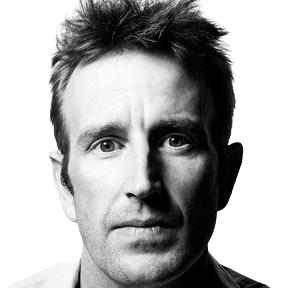Underland

Thanks to The Guardian for this review of an excellent must-read:: Last Christmas, perhaps wishing to get rid of an unwanted appendage to the family, my mother-in-law bought me a potholing experience in, or rather under, Snowdonia. I was led down an abandoned mine shaft which opened out on to a narrow ledge overlooking an apparently bottomless chasm. I experienced what my instructor would later tell me was “perceptual narrowing” – the way that, at times of pure terror, our field of vision dramatically constricts. At that moment, I was whisked back to the pages of my favourite childhood book, Alan Garner’s The Weirdstone of Brisingamen, which is about the hope and horror of underground places.
Robert Macfarlane quotes a long passage from Garner’s novel early on in Underland, his masterly and mesmerising exploration of the world below us. But, instead of perceptual narrowing, what this book is about is the broadening of perspective that comes when we take ourselves out of the familiar world of light and air. It is a book that seeks to re-enchant everyday existence by moving out of it; that asks us to be aware of those things, both actual and fabled, that move beneath our feet; it also seeks, as its subtitle “A Deep Time Journey” suggests, to reconfigure our experience of time, using the vast cycles of geological time and weaving in ancient mythical descents to take the measure of the Anthropocene era.
Macfarlane structures his book around three competing and overlapping uses that humans have had for the Earth below them: “to shelter what is precious, to yield what is valuable, and to dispose of what is harmful”. The book is configured as a journey into an underground labyrinth, which the author leads the reader into through “the riven trunk of an old ash tree”. We exit, utterly, beautifully changed, more than 400 pages later, through a chalk spring bubbling up in a Cambridgeshire wood. During that voyage, we move from the caves of the Mendips, to a Dark Matter research station in a rock-salt mine beneath the Yorkshire coast, to the Parisian catacombs, to the starless rivers that wend under the Carso plateau above Trieste, to the fjords and glaciers of the Arctic and the secrets they are divulging as they melt.
Macfarlane himself figures Underland as the culmination of his career to date, a logical conclusion of the movement downwards from the heights of Mountains of the Mind, via The Wild Places (in which there is a memorable passage that feels like a rehearsal for Underland in which Macfarlane swims into a sea cave on the Llyn Peninsula and finds “a vast white boulder” shaped like a throne), to The Old Ways, where he peels back the onion skins of the British landscape, uncovering the stories that have been trod into it by generations of travellers. Landmarks performs the same kind of excavation on our language itself, being both a celebration of writing about place and a “word horde” of terms whose precision helps us to describe the world around us with what Robert Lowell called “the grace of accuracy”. The Lost Words, Macfarlane’s collaboration with the artist Jackie Morris, continues this archaeological approach to language, retrieving a natural historical lexicon that was once part of every child’s vocabulary.
Underland is rich with echoes of these earlier works. It’s as if, deep within the ancient rock, Macfarlane is gaining perspective not only on time and nature, but also on his own literary career. For a book that spends so much time beneath the earth, there are some wonderful passages about climbing, with one striking scene on the Knud Rasmussen glacier in which the author and his companions watch a vast slab of ice collapse into the sea: “a blue cathedral of ice, complete with towers and buttresses, all of them joined together into a single, unnatural, sideways-collapsing edifice…” Underland is also about recovering language, both specific terms – in the course of a few pages, we find “swallet”, “ruckle”, “stridulations”, “kists”, “speleonaut” – and an attempt to give voice to existence in the Anthropocene, “an epoch of loss – of species, places and people – for which we are speaking a language of grief and, even harder to find, a language of hope”.
There is hope here, though, and plenty of it. As usual with Macfarlane, Underland is as much about the people he meets as the places he visits. He has a remarkable gift for bringing these charismatic eccentrics to life, whether it’s an urban explorer under the Seine, a physicist with a penchant for subterranean joyriding, or a brilliantly bonkers mycologist. At one point, a taciturn potholer in the Carso, Sergio, offers up a halting explanation of why he seeks to map the underland: “Here in the abyss we make… romantic science.” It’s a fitting description of this extraordinary book, at once learned and readable, thrilling and beautifully written.